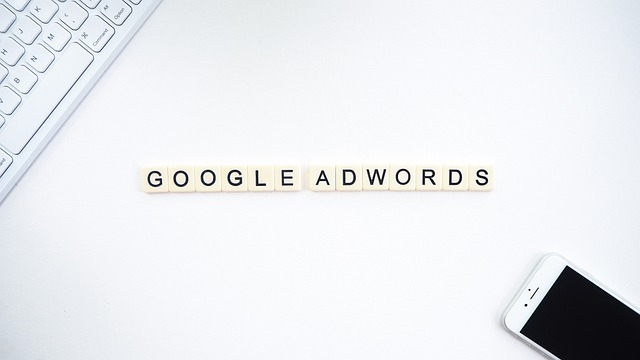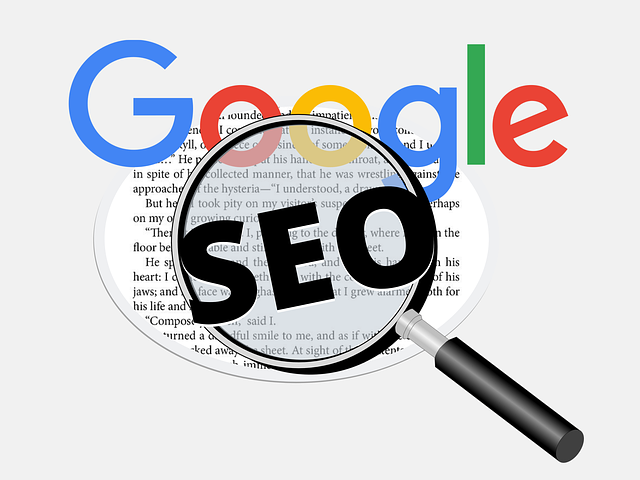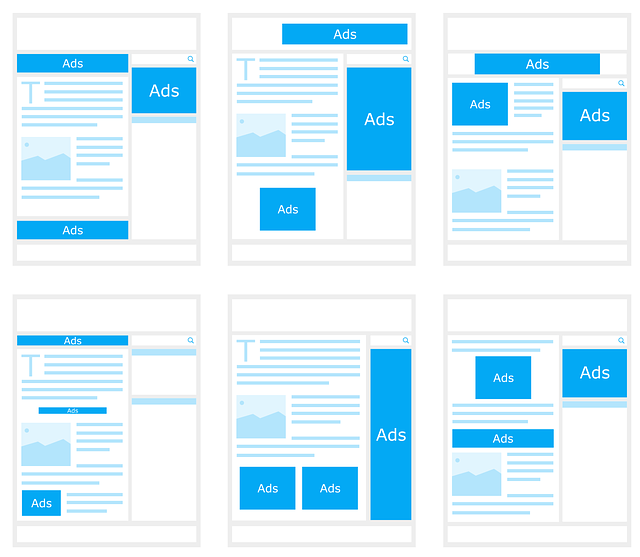When using search engine marketing, it’s ideal in situations where immediate visibility in search engines is crucial, targeting specific audiences is needed, and when businesses aim to compete effectively in a crowded online marketplace. So, When Using Search Engine Marketing Is The Right Idea? Read more below!
What is Search Engine Marketing
Search Engine Marketing (SEM) is a powerful tool in the digital marketing arsenal, offering unique opportunities for businesses to reach their target audience effectively. It involves the use of paid advertising to ensure that a company’s products or services are visible on search engine results pages (SERPs).

This approach can be particularly beneficial in various scenarios, where immediate visibility and targeted reach are crucial.
When Using Search Engine Marketing Is The Right Idea
Launching a New Product or Service
When launching a new product or service, search engine marketing can be invaluable. It allows businesses to quickly gain visibility in front of their target audience.

By using Google Ads or Bing Ads, companies can appear at the top of search engine results, even if their organic search presence is not yet strong.
This immediate visibility is crucial for new launches, as it helps in generating awareness and driving early adoption to find keywords.
SEM enables businesses to use specific keywords related to their new offering, ensuring that the ads appear to potential customers who are actively searching for related products or services.
Targeting a Specific Audience or Demographic
Search engine marketing is highly effective in targeting specific audiences or demographics.

By utilizing tools like Google Display Network and keyword research, businesses can tailor their ad campaigns to reach individuals based on their search queries, interests, geographic location, and even their behavior on other websites.
This precision targeting ensures that the ads are shown to users who are most likely to be interested in the products or services offered.

For instance, by identifying keywords that resonate with a particular demographic and using them in ad groups, companies can create highly relevant ad content that appeals directly to their desired audience, increasing the likelihood of engagement and conversion.
Entering a New Market or Geographic Region
When using search engine marketing to enter a new market or geographic region, Google Ads and Bing Ads can be pivotal. These platforms allow businesses to target ads based on specific geographic locations, making them ideal for regional expansion.
By conducting thorough keyword research and identifying keywords that resonate with the local audience, companies can tailor their ads to appear in search engine results pages (SERPs) relevant to that region.

This targeted approach in search engine marketing (SEM) ensures that the ads reach potential customers in the new market, helping businesses establish a foothold and gradually build their presence.
Boosting Visibility During Peak Shopping Seasons
During peak shopping seasons, boosting visibility through search engine marketing is crucial. Utilizing Google Ads and shopping ads, businesses can position their products or services prominently in search results.
This strategy is particularly effective as search volume surges during these periods. By carefully selecting relevant keywords and optimizing ad groups, companies can enhance their ad rank in search engine result pages.

This increased visibility in search engines during high-traffic periods is essential for capitalizing on consumer spending, driving traffic to landing pages, and ultimately increasing sales.
Recovering from a Decline in Organic Traffic in Search Engines
Recovering from a decline in organic traffic in search engines often necessitates a strategic use of search engine marketing. SEM, through platforms like Google AdWords and Bing Ads, provides an immediate solution to regain lost visibility.

By identifying the right keywords and creating compelling ad copy, businesses can effectively appear in search engine results, compensating for the shortfall in organic reach. This approach not only drives traffic through paid search but can also complement ongoing search engine optimization (SEO) efforts.
Additionally, analyzing data from Google Analytics helps in refining the SEM strategy, ensuring that the ads are targeted effectively to the desired audience.
Competing with Market Leaders in Your Industry
When using search engine marketing to compete with market leaders in your industry, Google Ads can be a game-changer.

By carefully conducting keyword research and identifying keywords that your competitors might be overlooking, you can create a niche for your brand in the search engine results pages (SERPs).
This strategy involves optimizing your ad rank and quality score through relevant ad text and landing pages, ensuring your ads resonate with the search intent of your target audience.
SEM allows for competing effectively, even with limited resources, by focusing on specific search terms and using negative keywords to refine ad groups for landing page or overall digital marketing strategy.

This targeted approach in digital advertising can level the playing field, allowing smaller businesses to challenge larger competitors in Google search results.
Promoting Time-Sensitive Offers or Events
Search engine marketing is particularly effective for promoting time-sensitive offers or events. Utilizing Google Ads and other PPC advertising platforms enables businesses to quickly launch ad campaigns that are highly visible in search results.
By choosing keywords with commercial intent and aligning them with the specific nature of the offer or event, companies can drive urgent traffic to their landing pages.

The use of countdown timers in ad copy and the strategic bidding in ad auctions can create a sense of urgency, encouraging user clicks.
This approach ensures that the target audience is aware of the time-sensitive nature of the offer, thereby driving traffic and conversions effectively.
Enhancing Brand Awareness and Recognition
Enhancing brand awareness and recognition through search engine marketing involves a strategic combination of paid search and a strong online marketing strategy.
By utilizing Google Ads and focusing on keywords that align with your brand values and offerings, you can increase your visibility on search engine result pages.
This increased exposure helps in building brand recognition.

Crafting ads with compelling ad text and a clear display URL can improve click-through rates and drive traffic to your website.
Additionally, SEM campaigns can be tailored to target audiences based on their search queries and digital behavior, ensuring that your brand reaches the most relevant users.
This approach not only drives immediate traffic but also contributes to long-term brand recognition and loyalty.
Driving Traffic to a Newly Designed Website with Google Ads
To drive traffic to a newly designed website, Google Ads can be an effective tool in your search marketing arsenal. By setting up an ad campaign, you can immediately start attracting visitors, bypassing the time it takes to rank organically.

The key is to identify keywords that are relevant to your website’s content and audience.
In Google Ads, you can create ad groups based on these keywords, ensuring that your ads are targeted and relevant. The PPC model allows you to control costs while maximizing exposure.
Google determines ad placement based on factors like ad relevance, highest quality score, and the maximum bid you set.
By optimizing your ads for a high click-through rate and a reasonable average CPC, you can efficiently drive traffic to your new site.
Supplementing a Long-Term SEO Strategy
Search engine marketing works well as a supplement to a long-term SEO strategy.
While SEO focuses on improving organic search results over time, SEM through Google Ads can provide immediate visibility.
By identifying keywords that are crucial for your SEO but not yet ranking well, you can use these in your paid ads to fill the gap.

This dual approach ensures continuous visibility on search engine results pages. The key difference in this strategy is the balance between paid ads and organic results.
SEM can provide valuable data on search terms and click-through rates, which can inform and refine your ongoing SEO efforts. When Using Search Engine Marketing Is The Right Idea else?
Targeting Niche Keywords with Low Organic Competition on Search Engine Results Pages
Targeting niche keywords with low organic competition on search engine results pages is a smart strategy in search engine marketing.
These specific keywords often have a lower average CPC due to less competition, making them cost-effective for ad campaigns.

By conducting thorough keyword research to find and choose these keywords, you can create focused ad groups in your Google Ads account.
The ad auction system allows advertisers to bid on these less competitive keywords, potentially achieving a higher ad placement with a lower bid.
This approach can yield a high click-through rate as your ads may appear prominently for these niche search terms, driving targeted traffic to your website.
This strategy is particularly effective for businesses with a unique product or service offering, as it allows them to reach a highly relevant audience efficiently.
Key Takeaways on When Using Search Engine Marketing Is The Right Idea
- When using search engine marketing, it’s crucial to choose keywords that align with your business goals and target audience.
- Google Ads play a significant role in enhancing visibility on search engine results pages.
- Effective SEM campaigns require a well-structured account with organized ad groups.
- Landing pages must be optimized to complement the ads for a cohesive user experience.
- A high quality score in Google Ads can lead to better ad placement and lower costs.
- Utilizing negative keywords in ad groups helps in refining the target audience and improving ad relevance.
- Paid search is a powerful tool to complement organic results from search engine optimization efforts.
- Advertisers bid in ad auctions, and a maximum bid strategy can be crucial for competitive keywords.
- SEM strategy should be flexible and adaptable, continually evolving based on search term performance and analytics.
- Regularly reviewing and updating keywords and ad copy is essential for maintaining the effectiveness of SEM campaigns.
Conclusion on When Using Search Engine Marketing Is The Right Idea
In the dynamic landscape of digital marketing, mastering search engine marketing is essential.
By strategically utilizing Google Ads, focusing on the right keywords, and continuously optimizing ad groups and landing pages, businesses can effectively reach their target audience, complement their SEO efforts, and achieve significant online visibility. That’s how search engine marketing work.
The key to success lies in a well-planned SEM strategy that adapts to changing trends and audience behaviors.
